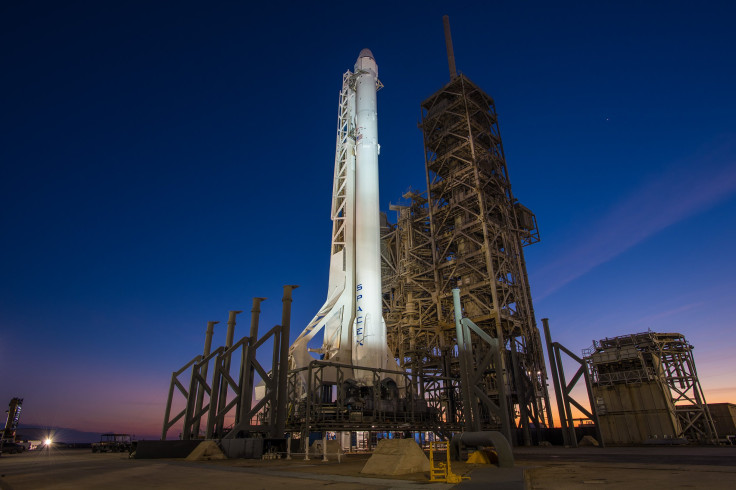Watch Live SpaceX Falcon 9 Rocket Launch, Recovery From Cape Canaveral

SpaceX is scheduled to conduct a launch from the Kennedy Space Center in Florida on Wednesday evening. The company is set to launch an EchoStar 105/SES-11 commercial communications satellite to geostationary transfer orbit above Earth.
The satellite will be launched by a Falcon 9 rocket and the two were already set up on the historic launch pad 39A on Tuesday evening before the scheduled Wednesday launch.
Falcon 9 and EchoStar 105/SES-11 went vertical last night on Pad 39A. pic.twitter.com/WWLoIobQb3
— SpaceX (@SpaceX) October 11, 2017
On Wednesday afternoon the weather was looking 90 percent favorable for the two-hour launch window that was set to open at 6:53 p.m. EDT. A backup launch window was scheduled for Thursday just in case the mission has to be scrubbed Wednesday.
The plan is for the Falcon 9 rocket to launch and carry the satellite up into space where it will deploy about 36 minutes after launch. The first stage of the rocket is set to separate and complete atmospheric re-entry before landing on the drone ship “Of Course I Still Love You,” said a release from SpaceX. That drone ship will be in the Atlantic Ocean off the coast of Florida where it will hopefully recover the first stage of the Falcon 9. The rocket that will be used is the same rocket that was used for the 10th resupply mission to the International Space Station in February by SpaceX.
The launch was originally scheduled for last weekend but was moved. Had the launch happened over the weekend it would have made for two launches within a 48 hour period for SpaceX, the company launched another rocket on Monday morning. It will happen at the same launch pad that was used for the Apollo missions and space shuttle launches in the past. It was recently upgraded for SpaceX rockets, the Falcon 9 and eventually the Falcon Heavy which is on track to have a test launch in November, according to SpaceX founder and CEO Elon Musk.
The EchoStar payload contains a “high-powered hybrid Ku and C-band communications satellite,” according to SpaceX. The satellite will help provide media access across North America and expand current coverage to the Gulf of Mexico and the Caribbean, according to EchoStar.
The launch will be broadcast live online and visitors to the Kennedy Space Center at Cape Canaveral are welcome to watch the launch. Viewing from the center is included in the price of admission while those who want a closer look have to buy tickets to get within four miles of the launch. Tickets from the original launch date last weekend are valid for the launch.
SpaceX’s last launch happened on Monday morning from the Vandenberg base in California.
Watch SpaceX launch and recover a Falcon 9 live here:
© Copyright IBTimes 2025. All rights reserved.



















